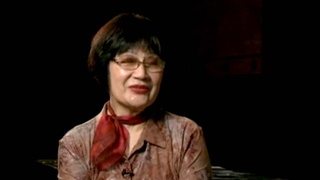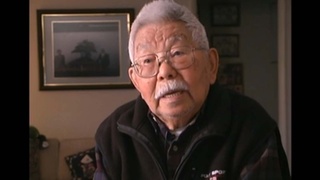Interviews
Her mother came to the U.S. with a group of picture brides
I remember her telling us a story about how she was on this ship – a whole group of picture brides, women who were coming – and she said, “I remember thinking that these people were coming to marry guys that they had never even met,” and of course my mother didn’t know her husband that well either, because she had just married, and he left in a matter of weeks.
And so she said – but she felt kind of superior to them, because she would have already have been married, and knew her husband, so she said, “I remember that these women had these picture, you know, of their – their prospective husbands, and they were trying to match their faces” – they didn’t – and she thought that was quite extraordinary a process. They never – and they – and she used to tell us a story of how she came to this country.
Date: August 7, 2018
Location: California, US
Interviewer: Sharon Yamato
Contributed by: Watase Media Arts Center, Japanese American National Museum
Explore More Videos

Moving to and living in Japan
Japanese American Creative designer living in Japan


Family interrelations between mother and father
(1926 - 2012) Scholar and professor of anthropology. Leader in the establishment of ethnic studies as an academic discipline

Going back to Hawaii
An expert researcher and scholar on Japanese immigrant clothing.

Picture brides and karifufu
An expert researcher and scholar on Japanese immigrant clothing.

Kibei schoolchildren in Hiroshima, Japan
(b.1913) Kibei from California who served in the MIS with Merrill’s Marauders during WWII.

Mother's immigration to U.S. as a treaty merchant
(b. 1927) Japanese American Nisei. Family voluntarily returned to Japan during WWII.

Chose to go back to Japan
(b.1924) Japanese Canadian Nisei. Interpreter for British Army in Japan after WWII. Active in Japanese Canadian community

Marrying Bob against family’s wishes
(b.1920) Japanese Canadian Nisei. Established the Ikenobo Ikebana Society of Toronto

Coming to America
(b.1943) Shin-issei grand master of taiko; founded San Francisco Taiko Dojo in 1968.

The reason for coming to Japan
(b. 1967) Hawai`i-born professional fighter in Japan

Treatment of Japanese Paraguayans during World War II (Spanish)
Nisei Paraguayan, Researcher

Reason to come back to Canada in 1954
(b. 1922) Canadian Nisei who was unable to return to Canada from Japan until 1952

Impressions from interviews with Issei women (Japanese)
Tsuda College President, researcher of Nikkei history

Avoiding the Japanese military
(1914-2004) Nisei Bonsai master in the United States
